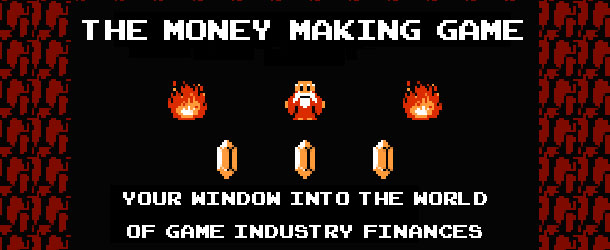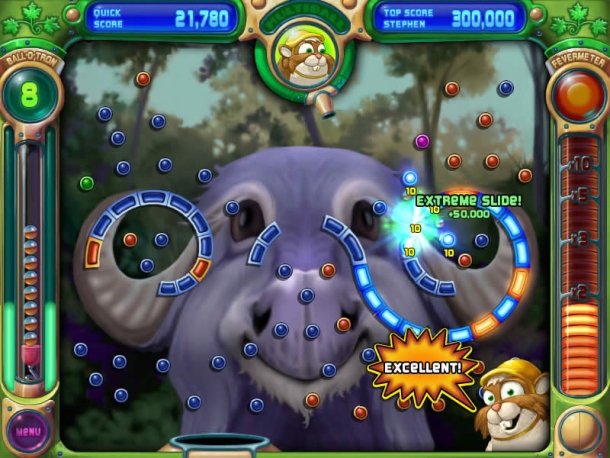
We certainly have no problem getting caught up in the fun of playing games, but the people who create them have their pocketbooks to worry about, too. In this column, finance expert and GameSpy contributor Chris Morris guides you through the tricky corridors the gaming industry's financial side, touching on big-time business decisions and how they matter to the common gamer.
Poppin' Those Sweet Stock Caps
Change is on the way for casual games titan PopCap Games. The question is: What sort of change?
Investors in the video game space are hoping it will be the odds-on favorite: A public offering by the beloved independent game company. But with all the cash floating around the video game space these days, no one is ruling out a takeover.
PopCap, for its part, is currently taking all the steps required to go public. The company has been adding outsiders to its board of directors for the past year-and-a-half. And it's boosted its annual revenue, which topped $100 million last year. For now, though, PopCap's bigwigs are biding their time -- gauging the waters and pondering the next step.
"I do think we'll be ready internally," says CEO David Roberts. "Whether the market is ready remains to be seen. ... It has got to be right for us."

While the company weighs its options, the suitors are calling. PopCap has received offers before, but none have been sufficient to capture the company's interests. But in the past year or so, valuations of companies that are closely tied to the mobile and social gaming space have skyrocketed -- and the rush of venture capital money has given several new publishers a lot of spending money.
Zynga, for instance, has a valuation of nearly $10 billion. This year, it expects to generate $1.8 billion in revenue, with $630 million of that being pure profit, according to published reports. It's also in the midst of working with two mutual fund companies for a financing round worth another $500 million -- making it the frontrunner among potential suitors.
Roberts acknowledges PopCap has had conversations with several companies, but says the company is still considering its options. "Whenever you file an S12, you're pretty much guaranteed that someone will come and try to buy you," he says. "Our goal is not about an exit at PopCap. It's about creating this legacy of games that mean as much as Monopoly and Scrabble to the world."
A few things make PopCap particularly appealing to both the private and public sectors. First, the company has a tremendous stable of franchises. Plants vs. Zombies, Peggle, Bejeweled, Zuma, and Bookworm are all big hits with broad footprints. Any investor would be happy to have a piece of them. The company has also ramped up its production lately, but not to the point where it's over-reaching.
"PopCap is moving conservatively, and that's good," says Billy Pidgeon, senior analyst of M2 Research. "They're growing, but not too fast."

Finally, it's seeing big growth these days thanks to the mobile and social revolutions in gaming. "We've probably gotten more new customers from Facebook and the iPhone in the past three years than we've ever had in our history," says Roberts.
Revenues are impressive at $100 million, but they're hardly in the same league as some of the industry's bigger players, including Zynga. That could put a ceiling on potential stock prices, but Roberts says he thinks it's something that can be managed. The key to happy investors, he says, is to set a target and meet it. Ultimately, execution is what people are looking for. "It's OK as long as you're setting expectations right," he says. "We're a little company. That makes us unpredictable in terms of revenue. We're software-driven -- which makes us unpredictable in terms of revenue. But we've been on forecast for 15 of the last 16 quarters."
The real fear of any change at PopCap isn't about investor acceptance; it's on what it might mean for the company's culture. Keeping shareholders (or new corporate overlords) happy is a lot different than meeting their own expectations. And the constant demand for improvement of the bottom line has trumped quality at a number of other companies.
"If they go public, I wonder if they'll start to lose some of the mojo they have right now," says Pidgeon. "They have sort of a Disney or Nintendo thing going on, in that there's a certain expected quality to their games. ... I'd really be concerned about their growth strategy, as it could cannibalize the elements that have made them successful so far."

Roberts downplays those concerns, noting that PopCap has always valued quality above everything else. He notes that he wanted to ship Plants vs. Zombies months before the game came out, but the team convinced him it needed more polishing. That, ultimately, was what made the game a breakout hit, he says. Meanwhile the company has spiked several other games that just didn't have that PopCap touch.
"We kill a lot of products before they go out the door," Roberts says. "If the team's not jazzed about doing it, we don't make them. It shows too much in the product if it's forced labor."
Chris Morris has covered the video game industry since 1996, offering analysis of news and trends, and breaking several major stories, including the existence of the Game Boy Advance and the first details on Half-Life 2.


